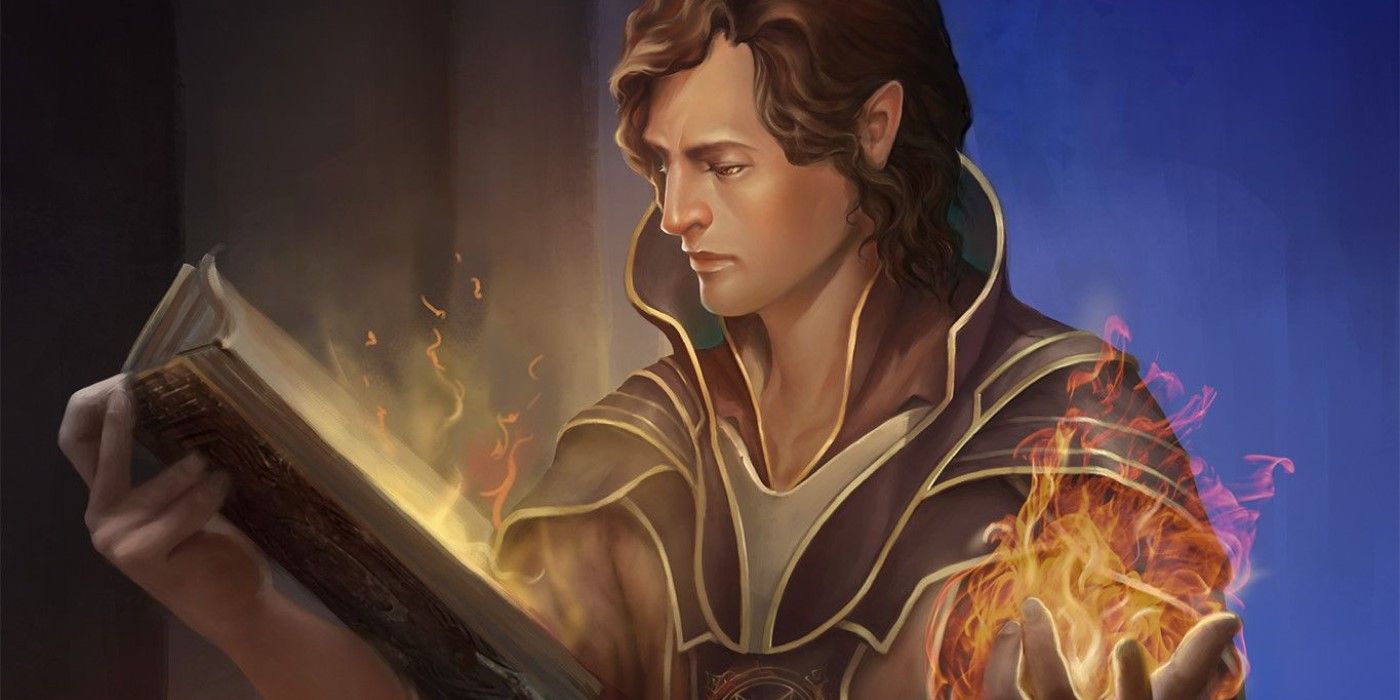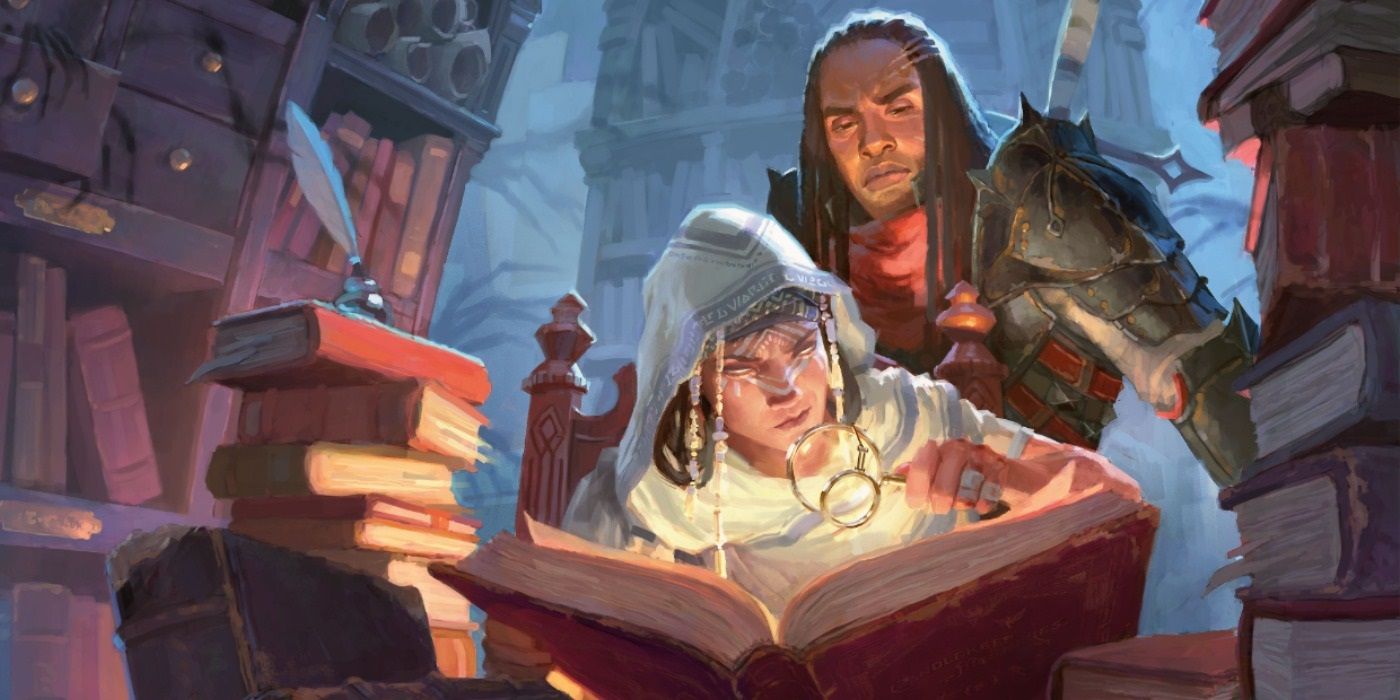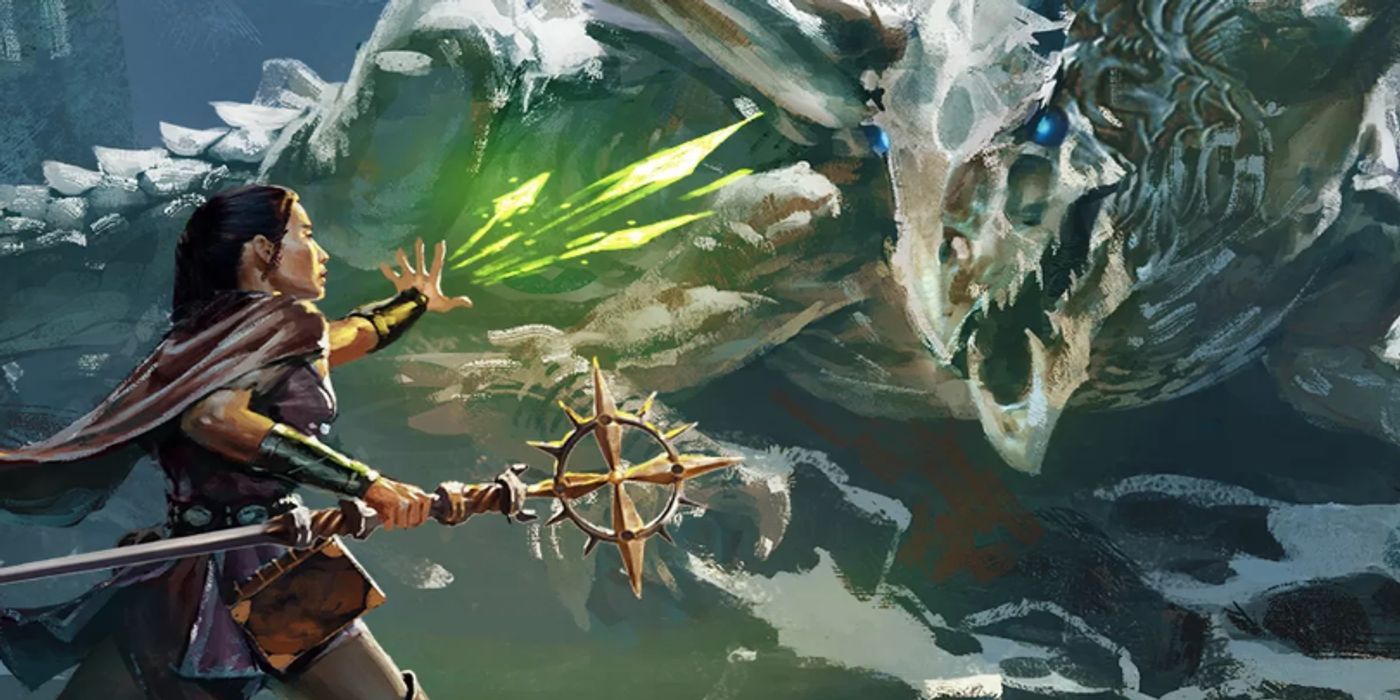The portrayal of certain classes in Dungeons & Dragons has been shaped by stereotypes introduced by both long-time players of the TTRPG, as well as other forms of media in the fantasy genre. One of the most stereotyped classes in D&D is the Wizard. Often portrayed as wise, sagely, and powerful, Wizards can easily take on traits like Merlin from King Arthur or Gandalf from The Lord of the Rings. It is also common for Wizards to have dark, treacherous pasts, leading them to take dangerous risks needed for their own success. However, there are many ways to create a Wizard character for a D&D campaign that doesn't rely on overused tropes and clichés.
When making a Dungeons & Dragons character for the first time, it can be easy to lean into stereotypes for certain classes, especially those found through online character-building resources. Even long-time D&D players can fall into a rut, repeating personality quirks of classic tropes instead of implementing new qualities and traits. However, players can avoid these problems by thinking outside the box when building their characters, and purposefully contradicting concepts that are common for the D&D class they have selected to play.
When creating unique backstories for any Dungeons & Dragons class, players will first want to consider what they are comfortable playing when in a group setting in person or online. While some players have no qualms playing a power-hungry Wizard with an Evil D&D alignment while juggling the complex list of Spells, Slots, Components, and enchanted gear they'll need to keep track of, others may want to simplify their Wizard's personality to help focus on other elements of the build. Because of this, the player will want to consider picking traits for their character they can properly roleplay without becoming stressed or anxious. The best way to avoid relying or falling back on stereotypes for any character is to feel confident in the choices for traits made before the campaign begins.
Dungeons & Dragons Wizards Can Have Unique Backstories
Creating compelling backstories is one of the many exciting parts of building a Dungeons & Dragons character. Because of this, players should treat their backstory as a unique history, where the class is an attribute, but not the character's personality. Instead of having a Wizard who pours over their spellbook constantly, or who has dedicated their life to magic, perhaps the Wizard got their start as a small-town cook at a local inn.
It could be they began using magic to enhance the flavors of their food, or give certain items restorative properties, and from there they became more interested in magic, eventually taking up a journey to learn more diverse ways to infuse their food items with spells and buffs. This Wizardly chef could provide powerful spells in battle, or simply be good at heating a pot of coffee with a fire spell, instead of a campfire, when the party is taking a long rest.
It could also be that the Wizard is exceptionally young, only having just set out to make something of themselves. Instead of decades of experience to draw on, the Wizard would have to take risks and hope things turn out for the best. They could also turn to their party mates for advice and wisdom, instead of being that source for the other players. The young Wizard could also be uninterested in amassing power, and instead want to channel magic for a simple cause, like running a magical emporium of odd goods, or eventually opening an all-magic carnival. D&D backstories like these allow a player to embrace character growth during the campaign, instead of holding back on opportunities to ensure their character behaves according to a longstanding backstory.
Dungeons & Dragons Wizards Are Great For Multi-Classing
Playing a Wizard can also open many opportunities for multiclassing, offering a mixture of unusual skills. For example, a player could start a large campaign like The Curse of Strahd playing a noble Wizard from a small kingdom, who is confident in their magical abilities but hasn't seen much of the world. Through their journey, the Wizard encounters numerous struggles and hardships, but because of narrative events that weren't predictable, they are given the opportunity to multiclass as a Bard. Now, with the background of a noble and the Charisma score of a Bard, the Wizard can be just as useful in giving regal pep talks to the party as they are powerful with spellcasting. The combination of combat spells like Fireball with buffs like Bardic Inspiration would create a versatile Wizard that can change to meet any situation.
Another interesting combination would be a Wizard and Rogue multiclass. Dungeons & Dragons' Rogues are powerful assets in most party make-ups. With the ability to use long-range weapons, perform stealth attacks, and pick locks, they are helpful both in dungeons and in combat. It could be that a Wizard begins learning lockpicking and stealth attacks due to a party filled with Fighters and Paladins, giving a surprise edge in combat. It could also be that the Wizard learned the skills at a young age before going on to learn magic, only to find them useful again when setting out on the campaign's adventure. This could create an interesting roleplay opportunity, as the Wizard comes to terms with the skills they learned to survive before finding themselves in a more comfortable position.
If players decide to go with a classic concept for a Wizard character, there are many ways to put a fresh spin on classic tropes. While the Wizard is old and wise, it could be they are forgetful, or mix up information, creating unusual outcomes when others ask for advice. It could also be the Wizard has seen the true power of D&D's magic and decides to walk away from their own ambitions, only to be forced to reclaim their abilities when the events of the campaign begin. These twists on the classic, confident Wizard build would allow the character to grow, despite being skilled and knowledgeable. Because creativity is often the driving force of a Dungeons & Dragons campaign, creating characters that are flexible and open to growth can encourage a satisfying narrative experience for both the players and the entire party.



